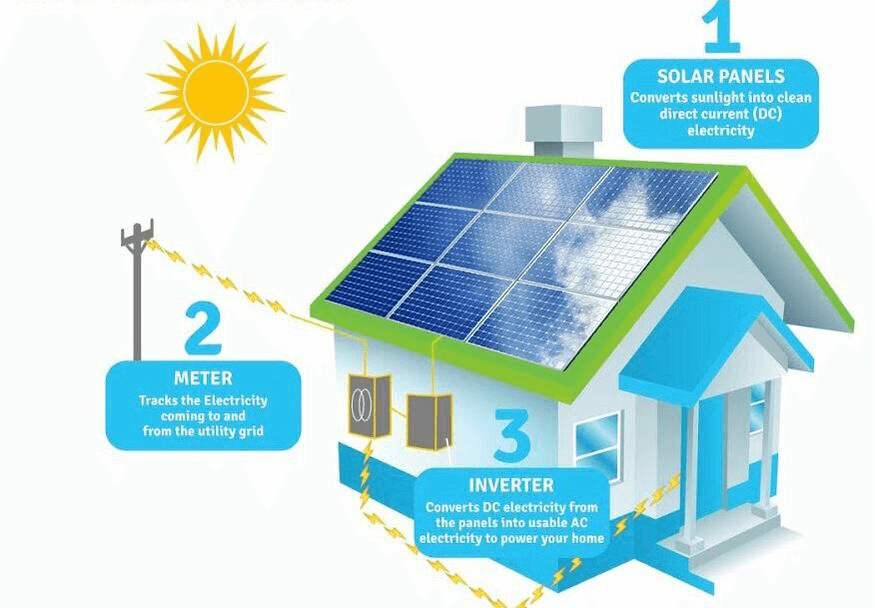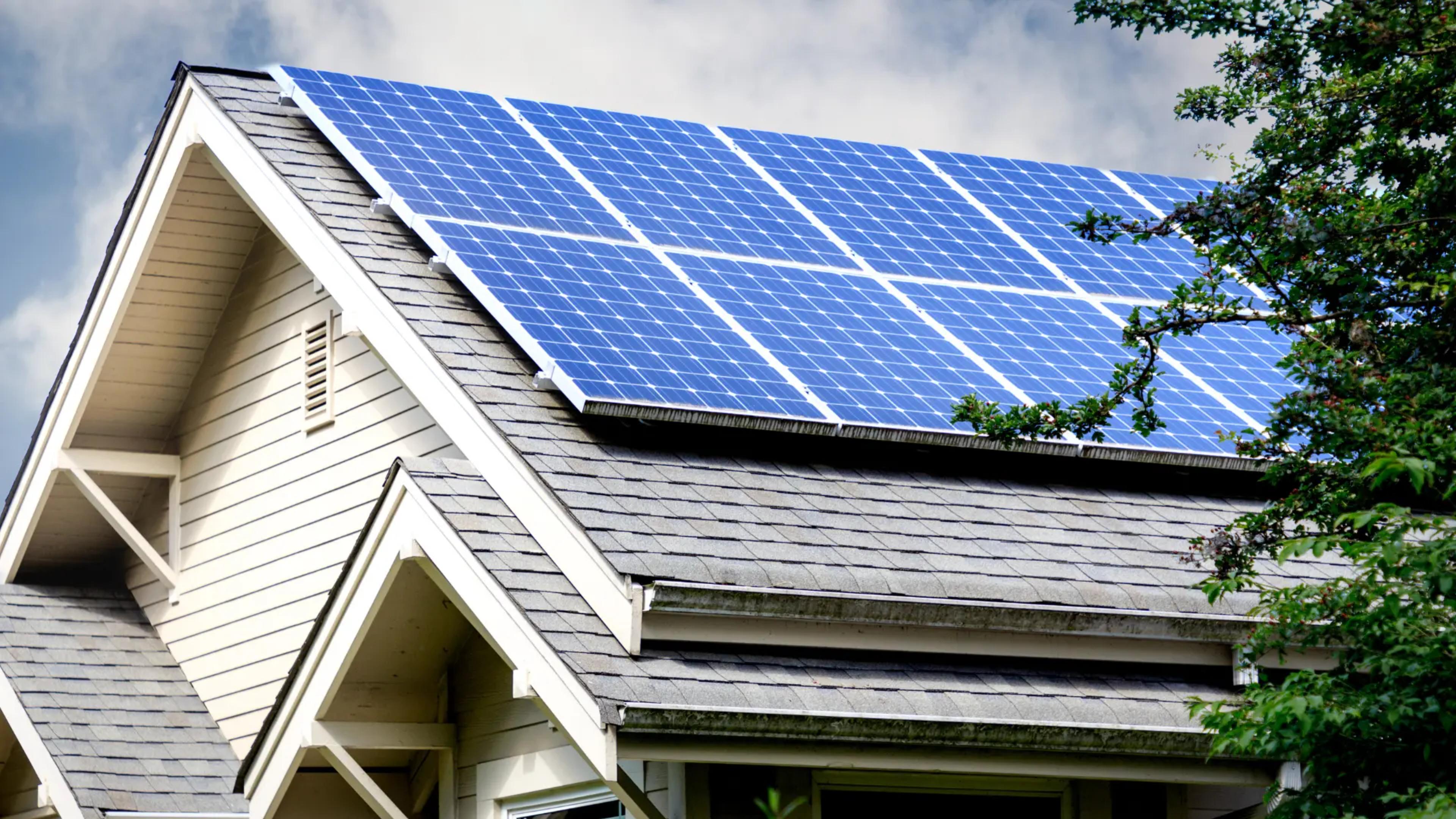Enjoy Cost-Effective Clean Energy with Simply Solar Illinois
Enjoy Cost-Effective Clean Energy with Simply Solar Illinois
Blog Article
How Solar Energy Can Help You Save Cash and Reduce Your Carbon Footprint
The combination of solar power into your energy portfolio presents a compelling opportunity for both economic cost savings and ecological stewardship. By utilizing the sun's energy, house owners can dramatically lower their month-to-month energy costs while likewise protecting against the unpredictability of future power prices. The shift to solar contributes to a marked decrease in carbon exhausts, straightening personal money with wider ecological objectives. As different federal government incentives appear, the question occurs: how can one successfully navigate the initial financial investments and recurring benefits of solar modern technology to make the most of both financial and environmental gains?
Understanding Solar Energy Cost Savings
While the shift to solar energy usually involves an initial financial investment, recognizing solar power financial savings is crucial for homeowners and organizations alike. Solar energy systems can dramatically reduce electrical energy expenses by harnessing the sunlight's power, equating right into significant lasting economic benefits.
Additionally, solar power systems may certify for numerous monetary incentives, consisting of tax credit reports and discounts, further improving their cost-effectiveness. The availability of internet metering enables users to sell excess energy back to the grid, creating an added earnings stream. These factors add to the total financial savings linked with solar power.

In addition to direct financial savings, solar power supplies the included benefit of raising property worth. Residences geared up with solar panels are frequently extra appealing to buyers, as they guarantee lower energy prices - Simply Solar Illinois. Comprehending these components is necessary for any individual thinking about solar power, as it highlights not just the potential financial gains, yet additionally the broader ecological and economic advantages of adopting renewable resource remedies
First Costs vs. Long-Term Conveniences
When examining solar energy, it is very important to consider the initial prices against the long-lasting advantages. The upfront financial investment for solar panels, installation, and associated tools can be significant, often varying from $15,000 to $30,000, depending upon the system dimension and home power needs. This preliminary expense may deter some home owners; however, it is vital to take into consideration the possible financial savings over time.
When installed, solar energy systems can considerably reduce or also remove monthly power bills, leading to substantial long-term economic benefits. Research studies indicate that homeowners can conserve anywhere from $10,000 to $30,000 over the lifespan of their solar system, commonly 25 years. Furthermore, numerous states offer rewards, tax obligation credit scores, and discounts that can balance out preliminary expenses, making solar much more accessible.

Minimizing Your Carbon Impact
Decreasing your carbon footprint is a crucial consideration in today's environmentally mindful society, and adopting solar energy is one of one of the most reliable techniques to accomplish this goal. Solar power is a clean, sustainable source that substantially decreases reliance on fossil gas, which are major factors to greenhouse gas exhausts.

Additionally, the extensive fostering of solar innovation motivates the advancement of environment-friendly tasks and supports developments in power storage and efficiency. The more individuals and organizations purchase solar power, the greater the collective reduction in carbon emissions, cultivating a cleaner environment for future generations.
Government Motivations and Rebates
Taking on solar power not only profits the atmosphere however can additionally result in substantial economic cost savings, particularly with the accessibility of federal government rewards and discounts. Numerous federal, state, and local programs are designed to urge homeowners and businesses to buy solar power systems, making the transition more economical.
One of one of the most noticeable rewards is the Federal Investment Tax Obligation Credit History (ITC), which enables planetary system proprietors to subtract a significant portion of the installment expenses from their federal tax obligations. This incentive has been pivotal in reducing the ahead of time costs connected with solar power systems. Furthermore, numerous states use their very own tax debts, grants, and rebates that can even more improve savings.
Furthermore, some city governments offer real estate tax exceptions for solar setups, making certain that homeowners do not deal with enhanced residential or commercial property tax obligations as a result of their sustainable energy financial investments. Utility firms might additionally use incentives, consisting of web metering and feed-in tolls, which enable solar power users to offer excess power back to the grid.
Choosing the Right Solar System
Picking the ideal planetary system is vital for making the most of power performance and financial advantages. The decision rests on several aspects, consisting of energy needs, budget plan, and readily available room. Home owners need to begin by assessing their electricity consumption to determine the system size needed for optimum performance.
Next, consider the visit this website different sorts of solar modern technologies available. Simply Solar Illinois. Solar (PV) panels are one of the most usual, converting sunshine straight right into electrical energy, while solar thermal systems focus on home heating water. Each kind has distinctive advantages depending on individual needs
Spending plan factors to consider are likewise vital. Initial installation prices can differ dramatically, so it is essential to contrast quotes from numerous service providers and explore funding options. Federal government incentives and discounts can better minimize the financial concern, making planetary systems much more accessible.
Conclusion
The ecological benefits of solar energy contribute to lasting techniques critical for combating environment modification. Government incentives boost the expediency of solar innovation adoption, encouraging a change in the direction of a cleaner, much more economically reliable power source.
Report this page